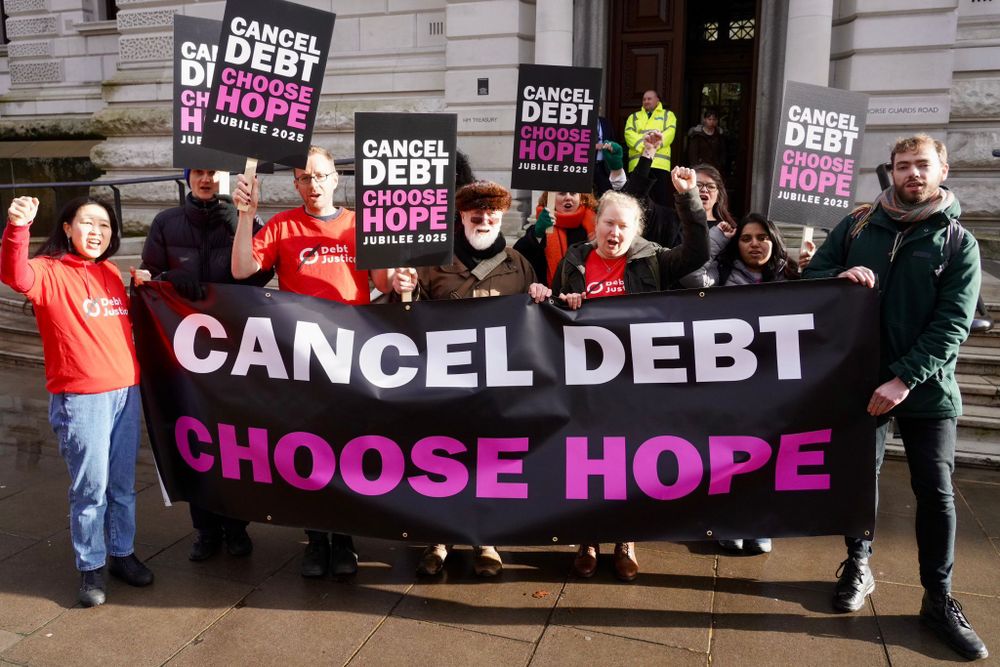
If you haven't yet, sign our petition -> act.debtjustice.org.uk/canceldebt

If you haven't yet, sign our petition -> act.debtjustice.org.uk/canceldebt
At the same time, private lenders were flooding lower-income countries with high-interest loans - creating the global debt crisis we’re seeing today.
At the same time, private lenders were flooding lower-income countries with high-interest loans - creating the global debt crisis we’re seeing today.


📚 16% in education
🚑18% in health spending.
📚 16% in education
🚑18% in health spending.




